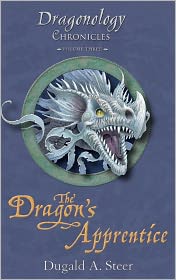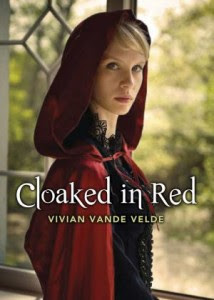 Synopsis: Daniel and Beatrice Cook, along with their parents and their dragon chick, Torcher, are getting ready to open an orphan dragon sanctuary near Castle Drake in St. Leonard's Forest. But then Dr. Drake brings news that several dragon members of the Society of Dragons have been attacked and it looks to be the work of the Dragonsbane Knights, a secret society of dragon slayers that was thought to have been eradicated centuries ago. If Dragonsbane is resurfacing, then no dragons in Britain are safe! When Torcher is kidnapped, Daniel and Beatrice are convinced that Dragonsbane is behind it, and, with the help of the Guardian Dragon's apprentice - an adolescent half-European, half-frost dragon named Erasmus - they race to bring Torcher home before it's too late.
Synopsis: Daniel and Beatrice Cook, along with their parents and their dragon chick, Torcher, are getting ready to open an orphan dragon sanctuary near Castle Drake in St. Leonard's Forest. But then Dr. Drake brings news that several dragon members of the Society of Dragons have been attacked and it looks to be the work of the Dragonsbane Knights, a secret society of dragon slayers that was thought to have been eradicated centuries ago. If Dragonsbane is resurfacing, then no dragons in Britain are safe! When Torcher is kidnapped, Daniel and Beatrice are convinced that Dragonsbane is behind it, and, with the help of the Guardian Dragon's apprentice - an adolescent half-European, half-frost dragon named Erasmus - they race to bring Torcher home before it's too late.
Review: This is a great adventure series for young readers, full of the sorts of things I enjoyed when I was little: dragons, villains, mysterious artifacts, secret societies, booby-traps, and best of all - treasure. Let it never be said that the Dragonology Chronicles have disappointed when it comes to treasure.
The Dragon's Apprentice is probably the best so far, delving into the history surrounding the S.A.S.D (Secret and Ancient Society of Dragonology), and presenting the Reader with a new and better enemy. Daniel and Beatrice are once more agreeable heroes, though at times I found Beatrice a little prissy, and Daniel's stupidity at times was aggravating. They are intelligent children, and yet they miss some of the most obvious things! However, Erasmus - a truly entertaining new character - makes up somewhat for these shortcomings.
The adventure itself was filled with cliches, from the map scribbled all over with typically glaring "hints" about how to disarm booby-traps, right down to the end, where the villain falls into uncontrollable giggles at beholding the treasure trove. Most of the booby-traps bring back sharp memories of Indiana Jones and the Last Crusade, and several times the characters act stupidly just to show the Reader what would happen if they solved the puzzle incorrectly. The dialogue during these parts reminded me of the games I used to play when I was little; children find it necessary to narrate everything that is happening, just in case their playfellow doesn't realize what is happening.
However, I wouldn't say that these things lessened the book's potential. Considering the age group that is targeted, I think these things will make any child squirm with glee, because it is exactly what adventuresome children like. So what it is rather cliche! There's treasure and dangerous traps, for crying out loud! The Dragon's Apprentice brought back lots of fond memories, and I enjoyed it thoroughly.
Overall Rating: JJJ
Overall Rating: JJJ
Others in the Dragonology Chronicles:
1)The Dragon's Eye
2)The Dragon Diary
3)The Dragon's Apprentice
4)The Dragon Prophecy
1)The Dragon's Eye
2)The Dragon Diary
3)The Dragon's Apprentice
4)The Dragon Prophecy








